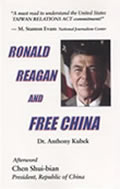PRIVATE PROPERTY RIGHTS DEFINED
by
Tom DeWeese
November 13, 2012
NewsWithViews.com
As the battle to stop Sustainable Development grows, it is important that activists have clear definitions of their points as they deal with elected officials and planners who are making policy in their community. Below is a start in defining private property rights.
In a “Fifth Amendment” treatise by Washington State Supreme Court Justice Richard B. Sanders (12/10/97), he writes: Our state, and most other states, define property in an extremely broad sense.” That definition is as follows:
“Property in a thing consists not merely in its ownership and possession, but in the unrestricted right of use, enjoyment, and disposal. Anything which destroys any of the elements of property, to that extent, destroys the property itself. The substantial value of property lies in its use. If the right of use be denied, the value of the property is annihilated and ownership is rendered a barren right.”
As a Founding Father, John Adams said:
“The moment the idea is admitted into society that property is not as sacred as the law of God, and that there is not a force of law and public justice to protect it, anarchy and tyranny commence.”
President Calvin Coolidge said:
“Ultimately, property rights and personal rights are the same thing.”
Rancher and Property Rights Activist Wayne Hage said:
“If you don’t have the right to own and control property then you are property."
Private Property Rights mean:
1. The owner’s exclusive authority to determine how private property is used;
2. The owner’s peaceful possession, control, and enjoyment of his/her legally purchased, deeded private property;
3. The owner’s ability to make contracts to sell, rent, or give away all or part of the legally purchased/deeded private property;
4. That local, city, county, state, and federal governments are prohibited from exercising eminent domain for the sole purpose of acquiring legally purchased/deeded private property so as to resell to a private interest or generate revenues;
5. That no local, city, county, state, or federal government has the authority to impose directives, ordinances, fees, or fines regarding aesthetic landscaping, color selections, tree and plant preservation, or open spaces on legally purchased/deeded private property;
6. That no local, city, county, state or federal government shall implement a land use plan that requires any part of legally purchased/ deeded private property be set aside for public use or for a Natural Resource Protection Area directing that no construction or disturbance may occur;
7. That no local, city, county, state, or federal government shall implement a law or ordinance restricting the number of dwellings that may be placed on legally purchased/ deeded private property;
8. That no local, city, county, state, or federal government shall alter or impose zoning restrictions or regulations that will devalue or limit the ability to sell legally purchased/deeded private property;
| Subscribe to the NewsWithViews Daily News Alerts! |
9. That no local, city, county, state, or federal government shall limit profitable or productive agriculture activities by mandating and controlling what crops and livestock are grown on legally purchased/deeded private property;
10. That no local, city, county, state, or federal government representatives or their assigned agents may enter private property without the written permission of the property owner or is in possession of a lawful warrant from a legitimate court of law. This includes invasion of property rights and privacy by government use of unmanned drone flights.











 Share
This Article
Share
This Article





